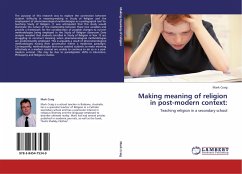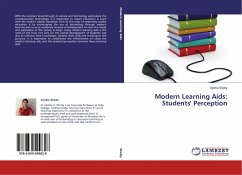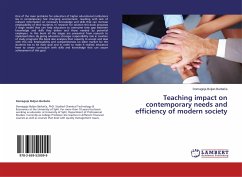
Making meaning of religion in post-modern context:
Teaching religion in a secondary school
Versandkostenfrei!
Versandfertig in 6-10 Tagen
39,99 €
inkl. MwSt.

PAYBACK Punkte
20 °P sammeln!
The purpose of this research was to explore the connection between student difficulty in meaning-making in Study of Religion and the employment of phenomenological methodologies as a pedagogical tool for teaching Study of Religion. It was anticipated that this study would illuminate the nature of the relationship between these two variables and provide a framework for the consideration of possible changes to current methodologies being employed in the Study oF Religion classroom. Data analysis revealed that students enrolled in Study of Religion in Year 12 are struggling to construct meaning w...
The purpose of this research was to explore the connection between student difficulty in meaning-making in Study of Religion and the employment of phenomenological methodologies as a pedagogical tool for teaching Study of Religion. It was anticipated that this study would illuminate the nature of the relationship between these two variables and provide a framework for the consideration of possible changes to current methodologies being employed in the Study oF Religion classroom. Data analysis revealed that students enrolled in Study of Religion in Year 12 are struggling to construct meaning when phenomenological methodologies are predominantly employed. This is arguably a result of phenomenological methodologies having their provenance within a modernist paradigm. Consequently, methodologies that once assisted students to make meaning effectively in a modern context are unable to continue to do so in a post-modern context. This may be due to paradigmatic shifts in Education, Philosophy and Religious Studies.












